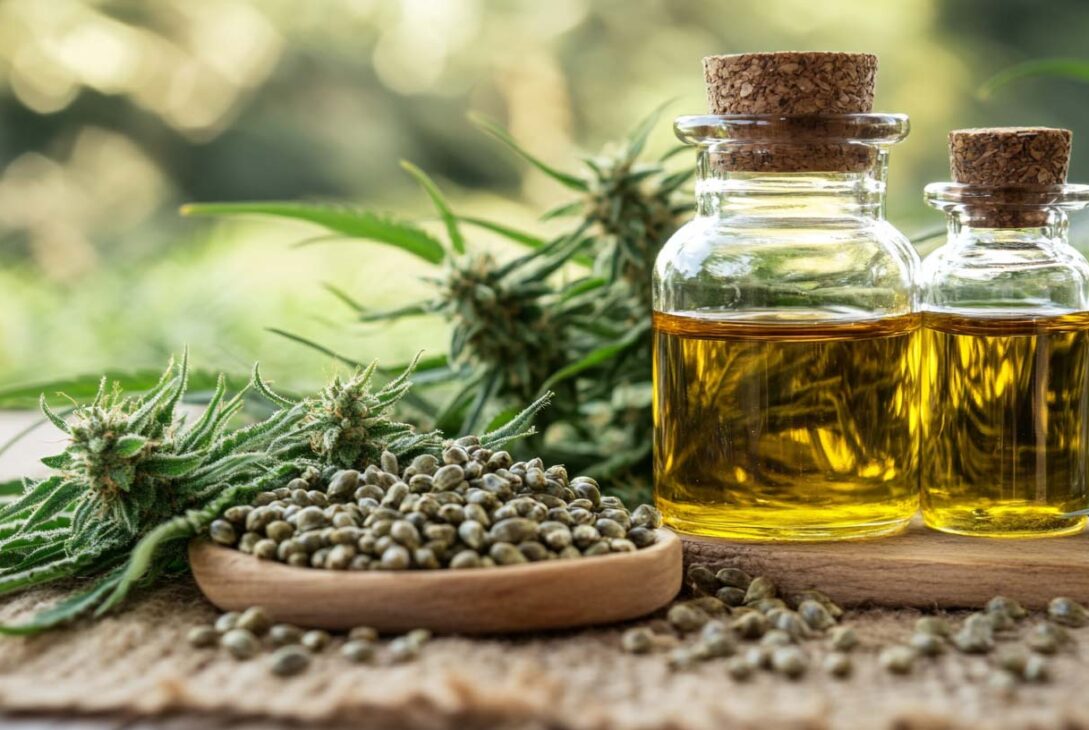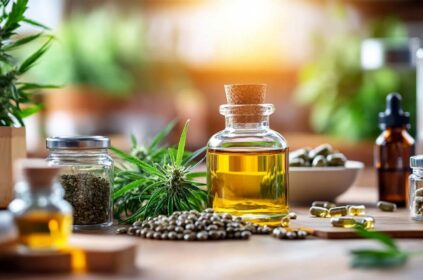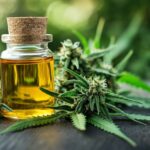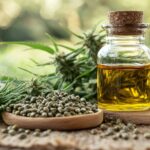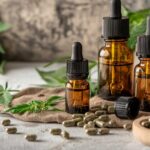Introduction
As the popularity of CBD continues to soar, consumers are becoming increasingly discerning about the quality and origin of the products they choose. Among the many factors influencing this choice, one stands out: the differences between organic hemp and conventional hemp. A key aspect of this distinction lies in the presence and profile of terpenes, the aromatic compounds that not only give hemp its characteristic scents but also play a significant role in its therapeutic benefits. In this guide, we’ll explore the nuances between organic and conventional hemp, focusing specifically on their terpene profiles and how these impact CBD products.
Understanding Terpenes
Terpenes are fragrant compounds found in many plants, including hemp. These compounds create the diverse scents associated with different strains of cannabis and contribute to their unique flavors. But terpenes offer more than just pleasant aromas; they work synergistically with cannabinoids like CBD to create what is known as the entourage effect. This effect enhances the therapeutic benefits of CBD, making it more potent and effective in addressing various health concerns.
For instance, some terpenes are known for their calming effects, which can work in tandem with CBD to relieve anxiety. Others may aid in pain management or improve sleep quality. The diversity and balance of these terpenes are vital for a holistic experience, making their presence in hemp products crucial.
Organic Hemp vs Conventional Hemp
Cultivation Methods
The first and perhaps most fundamental difference between organic and conventional hemp lies in their cultivation methods. Organic hemp is grown without synthetic pesticides, herbicides, or fertilizers. Instead, it relies on natural growth practices, fostering an environment where plants can thrive. This organic approach not only leads to healthier plants but also allows them to produce a more diverse array of terpenes.
In contrast, conventional hemp often involves the use of chemical interventions aimed at enhancing growth and controlling pests. While these methods may enable higher yield outputs, they can also diminish the natural terpene profile of the plant. When terpenes are compromised, the resulting aroma, flavor, and potential therapeutic effects of the hemp can be less vibrant and effective.
Terpene Profile
The terpene profile of organic hemp is typically richer and more varied. This is due to the healthy growing conditions that organic farming promotes. Diverse genetics and environmental factors allow for the development of a full spectrum of terpenes, enhancing both flavor and aroma.
Conversely, conventional hemp may exhibit a less complex terpene profile. Some research indicates that the chemical treatments used in conventional farming can reduce the variety and potency of terpenes. As a result, products derived from conventional hemp might offer a more muted flavor and aroma, lacking the depth found in their organic counterparts.
Impact on CBD Products
Flavor and Aroma
The effects of terpenes are particularly noticeable in the flavor and aroma of CBD products. Organic hemp-derived CBD often possesses a more intricate and authentic flavor profile, thanks to its rich terpene content. This can translate to a smoother, earthier taste that many consumers find more enjoyable and satisfying.
Conventional hemp products, however, may lack this complexity, leading to a more bland experience. For consumers seeking not just functionality but also enjoyment in their CBD choices, the taste can be a significant factor.
Therapeutic Benefits
The entourage effect—wherein terpenes and cannabinoids work together—plays a crucial role in the therapeutic efficacy of CBD. Organic hemp products tend to provide a more pronounced entourage effect. This means they might be more effective for alleviating conditions such as chronic pain, anxiety, and insomnia.
For example, a study showed that the incorporation of specific terpenes like myrcene and limonene can enhance the calming effects of CBD, making organic options potentially more beneficial for therapeutic use.
Legal and Safety Considerations
Legally, both organic and conventional hemp products fall under the same regulations set by the U.S. government, provided they contain less than 0.3% THC. However, the production methods can impact the safety and quality of the final product. Organic hemp products usually undergo more rigorous testing and are less likely to contain harmful residues from pesticides or other chemicals. This factor makes organic products generally safer and more reliable for consumers.
Cost and Accessibility
Cost
Typically, organic hemp-derived CBD products come with a higher price tag. This increased cost is due to more labor-intensive cultivation practices and the strict regulations organic farmers must adhere to. While it might seem steep, many consumers find the superior quality and enhanced effects worth the investment.
Accessibility
On the other hand, conventional hemp-derived products are more readily available and generally more affordable. This can be attractive for those looking to incorporate CBD into their routine without breaking the bank. However, this accessibility may come at the price of quality and potency, particularly regarding terpenes.
Conclusion
When it comes to choosing between organic and conventional hemp-derived CBD products, the differences in terpene profiles, cultivation practices, and eventual therapeutic effects are vital. Organic hemp offers a diverse and potent terpene profile, leading to richer flavors and more pronounced health benefits, all while ensuring a cleaner product free from synthetic chemicals. While conventional options might be more budget-friendly and accessible, they often sacrifice complexity and efficacy.
Actionable Tips
- Opt for Organic: If your goal is to find a high-quality CBD experience, choose products that are derived from organic hemp.
- Investigate Terpene Profiles: Look for brands that provide detailed information about their terpene profiles—this can help you choose products that align with your wellness needs.
- Prioritize Quality Control: Seek out products that have undergone third-party lab testing to ensure safety and purity.
- Balance Your Budget: While organic products might be pricier, consider them as an investment in your health and well-being.
By understanding the significant differences between organic and conventional hemp, particularly regarding terpene profiles, you can make informed choices that align with your health and wellness goals.

